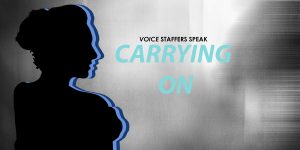Controversy. Clicks. Criticism. These buzzwords have come to define both the goals and perceptions of modern-day media, for better or for worse. And as I prepared to write my final column for the Voice, I realized that while I’m about to embark on a career in journalism, I’m leaving behind one of the most empowering, illuminating experiences of my life—being a part of campus media.
After writing countless editorials, numerous news articles, and a few features, the critical importance of campus journalism has resonated with me deeply. College publications are not free advertisers for universities, nor are they mouthpieces for student advocacy organizations; rather, they are invaluable conciliators between the two. Just as niche groups on campus influence Georgetown policy and politics, the Voice and The Hoya have the potential to make a significant impact on the Hilltop. As campus media, I’d argue that they have the added responsibility to do so.
One of the most rewarding (yet painstaking) experiences I’ve had at Georgetown was writing the Voice’s medical leave of absence feature last fall. During the writing and editing process, I stressed about doing the topic, and the stories of my interview subjects, justice. I kept asking myself: Am I providing a fair picture based on the accounts from all sides? Are my editors preserving the vision and integrity of my sources and the piece overall? Throughout my research and reporting, I learned that the cracks in the foundation of Georgetown’s medical leave of absence process abound, and the pressure to tackle this topic was even greater since, at least in recent years, it hadn’t before been addressed. When the article appeared in print, coupled with an editorial, the response was overwhelming—I had acquaintances reach out thanking me; I saw the piece being shared on social media more so than any other I had written; a member of GUSA (yes, GUSA!) even reached out to me informing me that it would now try to take the reigns to solve the problems elucidated in the article. More than anything, I was both inspired and motivated by the impact I had on the lives of my sources who had been mistreated by the system.
Even the negative feedback was productive—after the editing process, where content must be cut to fit a word length and paraphrasing can get murky, one of my sources voiced valid criticisms of the piece, and so I encouraged him to write an op-ed addressing his concerns. The following week, he and another student wrote a Voices piece that continued the conversation surrounding medical leave. The GUSA Senate set goals on addressing Georgetown’s MLOA policy in its next meeting. And yet, nothing has happened. No concrete action has been taken. The buzz generated by the article—like the RA treatment and diversity requirement features—naturally dissipated. In order for campus media to fulfill its potential to make an impact, this can’t happen.
The Voice prides itself on consistently covering issues like sexual assault, free speech, workers’ rights, and ever-changing housing and meal plan requirements. And its efforts have helped magnify the voices of students actively advocating for those issues while holding the university accountable to respond—resulting in mandatory sexual assault education at NSO, reforms to the free speech code, crucial ongoing conversations with the university regarding the rights of Leo’s workers and adjunct professors, and the tabling of the considered third-year meal plan mandate. Not to mention, the 2012 investigative feature on The Corp received both praise and backlash in its 93 comments, and resulted in real institutional changes—if that’s not a conversation, I don’t know what is. If you don’t think campus media matters, think again.
That being said, students can’t be afraid to talk to campus press about pressing issues. For example, while I served as news editor last semester, one of my writers pursued a story about the mistreatment of dance groups on campus, from practice and performance space access to bureaucratic barriers to funding. No dancer, however, would speak with the reporter, for fear of repercussion from DPAC. I then realized that this incident was likely not the first of its kind.
Georgetown’s campus publications will be more crucial than ever entering the 2018 Campus Plan discussions—but the virality of stories doesn’t mean a damn if there’s not continuous follow-up from journalists or follow through with students involved in relevant advocacy organizations. The Voice and The Hoya will continue to serve as whistleblowers to the injustices on campus, be they perpetrated by administrators or fellow Hoyas, but campus media need student help in spotting such problems, whether through tips or even just willingness to speak on sensitive topics. And just as student publications hold the university accountable, students can hold publications accountable—to truth, to fairness, and to dignity. The relationship between students and student media is both symbiotic and significant. If we don’t tell our own stories, who else will?



